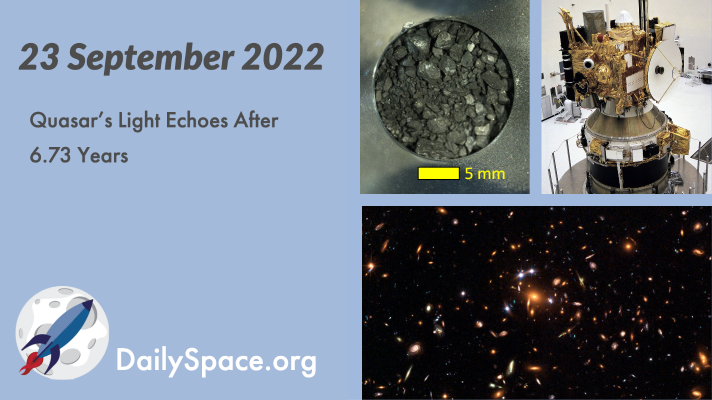
Sep 24, 2022 | Asteroids, Daily Space, DART, Europa, Fast Radio Bursts, JAXA, Jupiter, Mars, Quasar, Random Space Fact, Space History
Astronomers using the 1.2-meter Whipple Observatory to follow the brightness of a lensed galaxy for 14.5 years have calculated that the time delay between light arriving along the shortest and farthest paths is 6.73 years. Plus, DART, Hayabusa2, Juno, fast radio bursts, and This Week in Space History, we look back at NASA’s 1990s attempts to reach Mars.
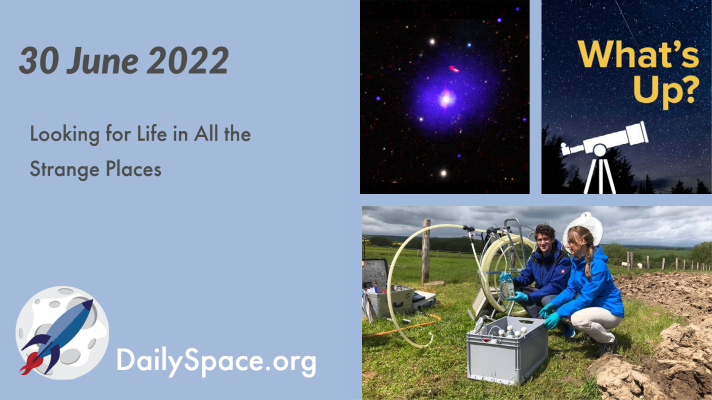
Jul 1, 2022 | Astrobiology, Daily Space, Earth, Europa, Mars, Quasar, Sky Watching, Spacecraft, SpaceX, Stars, Supermassive Black Holes
A trio of stories examines the possibilities for finding life in strange, new places, including deep underground here on Earth, in the subsurface oceans of Europa, and fossilized within sedimentary rocks on Mars. Plus, a SpaceX launch, gamma-ray bursts, and this week’s What’s Up.
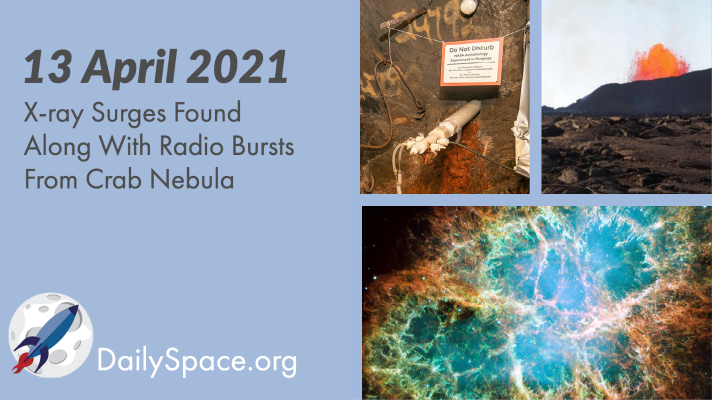
Apr 17, 2021 | Astrobiology, Daily Space, Earth, Exoplanets, Galaxies, Nebulae, Neutron Stars / Pulsars, Quasar, Spacecraft
Data analyzed from the NICER telescope aboard the ISS contains evidence of X-ray boosts accompanying radio burst detections, releasing more energy than expected as “giant radio pulses”. Plus, machine learning, intraterrestrial life, all the volcanoes, and updates on SN15 and Ingenuity.
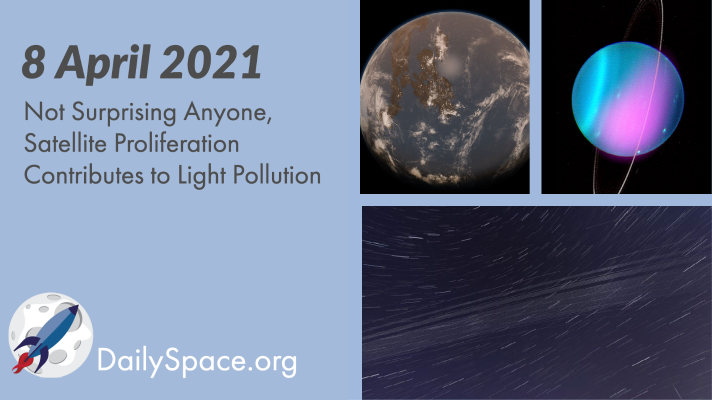
Apr 12, 2021 | Comets, Daily Space, Earth, Galaxies, Mars, Quasar, Sky Watching, Starlink, Supermassive Black Holes, Uranus
A new study examined the effects of recent increases in the number of space objects orbiting Earth and found that the proliferation of satellites contributes to a nearly ten percent increase over natural lighting of the night sky. Plus, Mars, Uranus, Neptune, ancient Earth, volcanoes, and our weekly What’s Up segment.
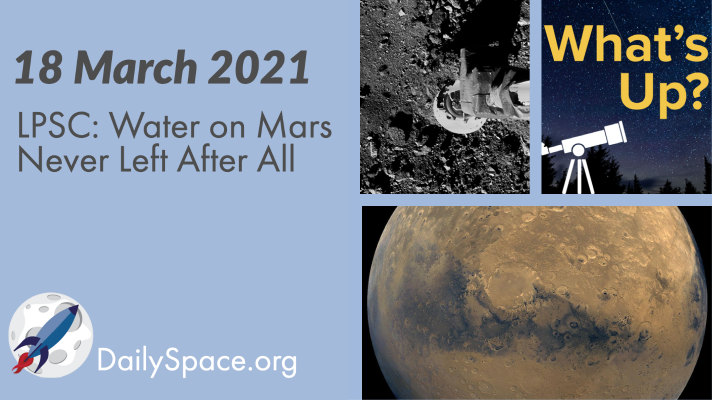
Mar 22, 2021 | Asteroids, Astrobiology, Daily Space, Earth, Galaxies, LPSC, Mars, OSIRIS-REx, Quasar, Science, Sky Watching, The Sun
New research shows that most of the water once thought to have escaped Mars is actually still trapped in the minerals in the crust. And life may still be present and accessible on the red planet. Plus, a cosmic lens, Bennu, volcanoes, more news from LPSC 2021, and our weekly What’s Up.
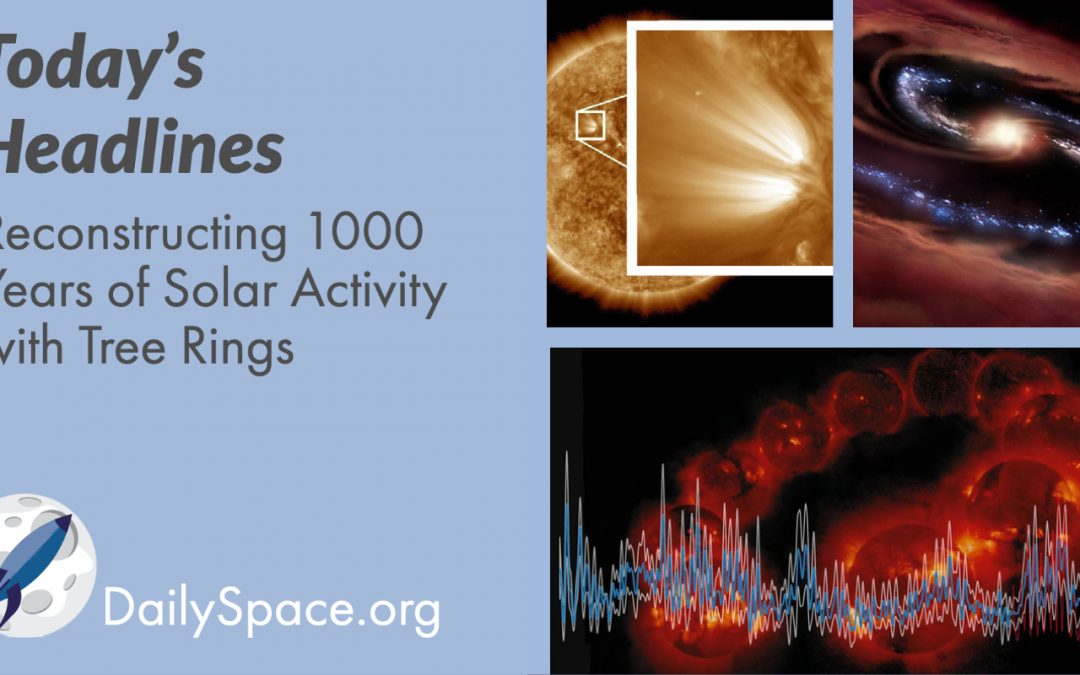
Jan 22, 2021 | Daily Space, Earth, Exoplanets, Galaxies, Mars, Quasar, Sky Watching, The Sun








 We record most shows live, on Twitch. Follow us today to get alerts when we go live.
We record most shows live, on Twitch. Follow us today to get alerts when we go live.